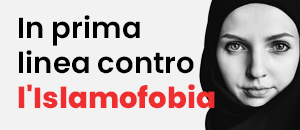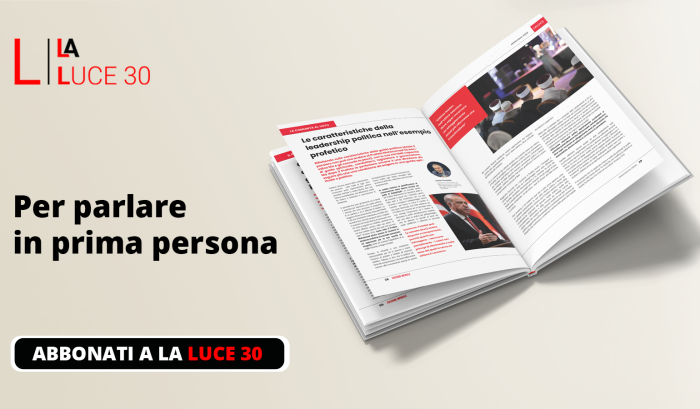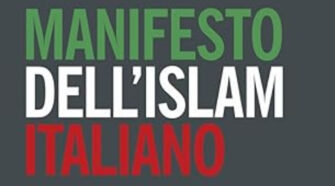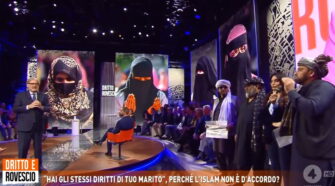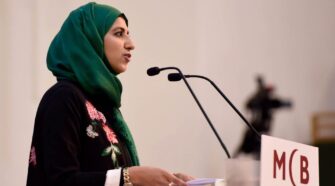While the draft of the new law criminalizes any protest against the application of the concept of French secularism, the president demanded the removal of an article critical of his persecutory policies, revealing the true nature of his battle.
According to Macron, it would seem that the ongoing clash between France and the Islamic world is mainly determined by his desire to defend freedom of expression, considered a fundamental value of French identity.
This narrative would be further supported by the content of the new bill against “Islamic separatism,” which provides, among other things, very heavy penalties and even expulsion from the country for those who protest with a public officer based on their religious beliefs. According to Macron and his ministers, the reason, again, is avoiding undue pressure that could inhibit freedom of expression.
Interior Minister Darmanin gave an example of a concrete case for law enforcement: A parent who complains about a teacher who showed blasphemous cartoons in class will commit a crime and may even be expelled from France if he is a foreigner.
Here, we are talking about a President of the Republic who phoned the editorial office of a foreign newspaper to demand that an article critical of him be removed?
On November 2, the Financial Times published a column in which its Brussels correspondent Mehreen Khan argued that Macron’s war on “Muslim separatism” has created a strong division in France, causing a climate of phobia towards French Muslim citizens.
At that point, the cabinet of monsieur le president lobbied hard on the publisher to remove the article and, not satisfied with this, demanded the publication of a letter in which he criticized the removed column.
The article was removed with the paradoxical consequence that the reader can now read Macron’s response to an article that no longer exists.
The same thing happened to the article of the Franco-Iranian sociologist Farhad Khosrokhvar,which was removed because “it did not meet editorial standards,” according to the editor of Politico.eu. In an article titled “The Dangerous French Religion of Secularism,” Khosrokhvar argued that “France’s extreme form of secularism and its adherence to blasphemy” has fueled radicalism within its marginalized Muslim minority.
The sociologist, in a subsequent article published by another newspaper, wrote that this episode of censorship is the demonstration that French secularism has become a religion in itself because those who criticize it have to face serious consequences.
Moreover, to demonstrate his love for press freedom, Macron called a New York Times columnist to complain that the Anglo-Saxon press, with its criticisms, was “legitimizing violence”, said Ben Smith himself in in an article published in the NYT.
An accusation of unprecedented gravity, especially if it comes from a head of state who considers his country at war. According to the new law that the French government wants to approve, with these kinds of charges you can end up in jail.
Therefore, it is clear that the concept of freedom of the press, and of expression in general, is far from that guaranteed by the American First Amendment. It resembles that of certain regimes in which criticisms is a mortal sin and freedom consists in being free to praise the president.
Macron, his government, and his party not only defended Charlie Hebdo but also promoted the dissemination of very offensive cartoons against 6 million French Muslim citizens and 1.8 billion Muslims worldwide. He did this by arguing that secularism does not recognize any special protection for the feelings and religious convictions of citizens.
At the same time, however, Macron did not hesitate to censor those who challenged his policy in prestigious international newspapers. By doing so, he made it clear that even in France freedom of expression is not unlimited; blasphemy against the state religion is taboo.
Therefore, if the Financial Times and Politico.eu had been French Islamic organizations, they would have been promptly dissolved by the interior minister Darmanin. This is what happened to the NGO Barakacity and to the French Collective Against Islamophobia, whose only fault was to denounce the persecutory policies against French Muslims.

